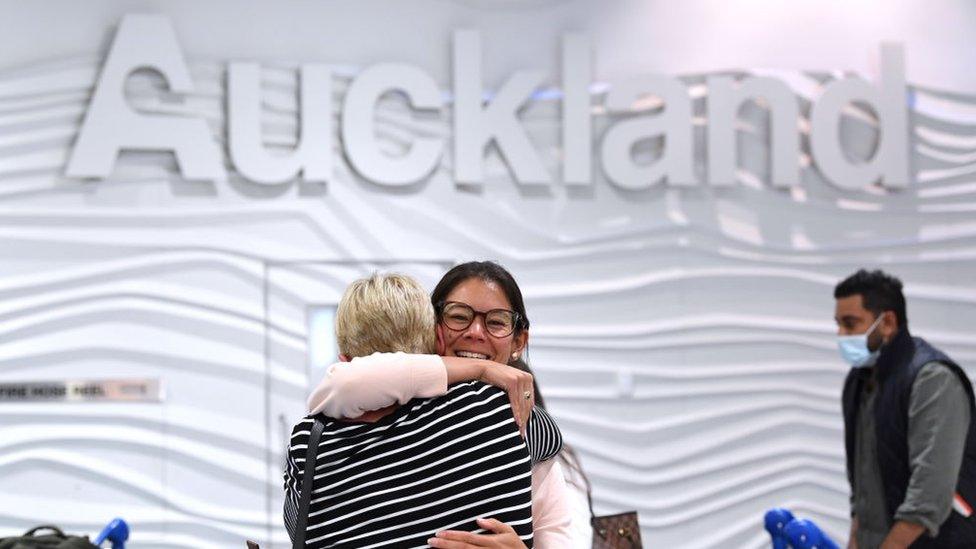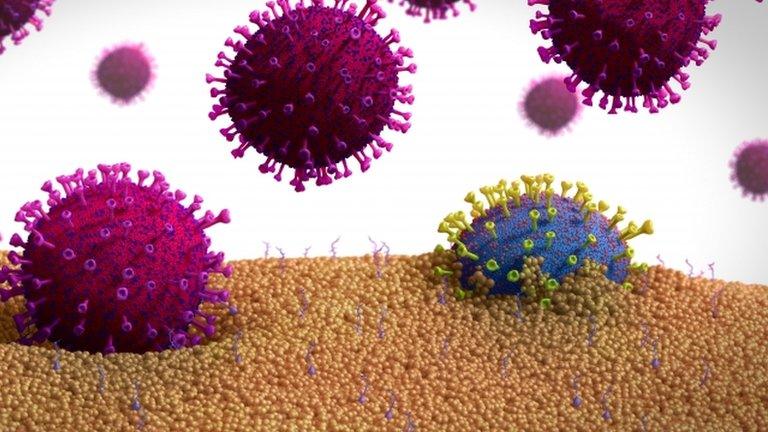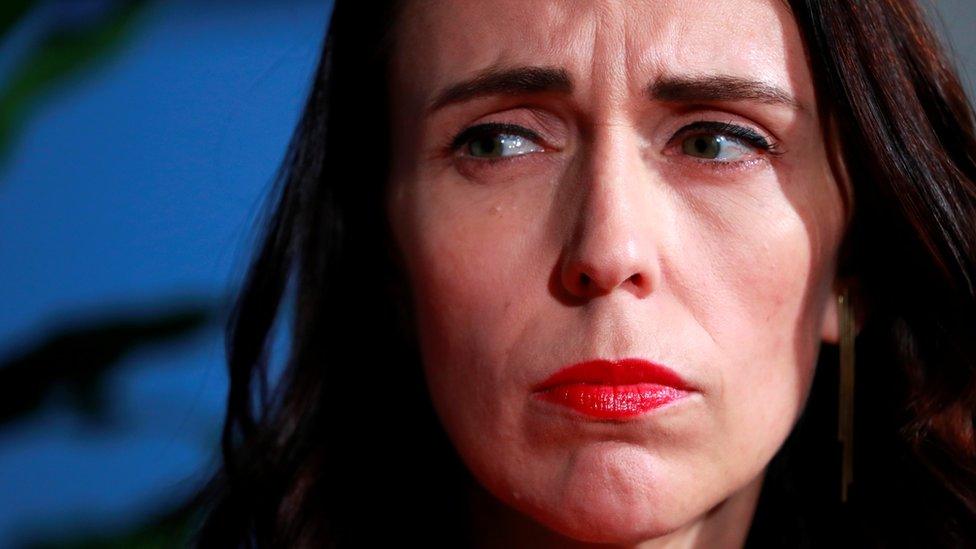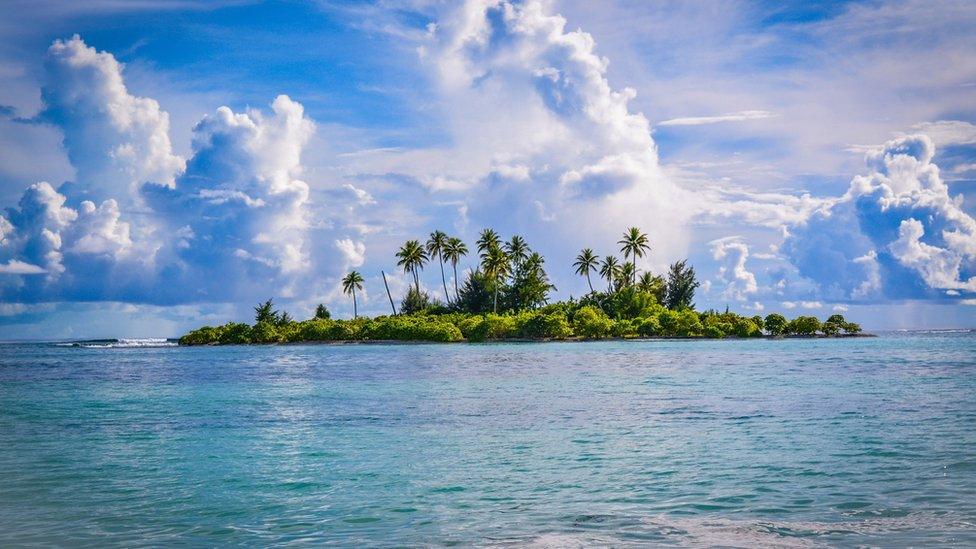Covid: New Zealand unveils phased border reopening plan
- Published

New Zealand has announced a phased reopening of its borders, as the country starts to ease some of the world's toughest Covid restrictions.
Vaccinated citizens in Australia can go home from 27 February without needing to undergo state mandatory hotel quarantine.
Jabbed citizens elsewhere will be allowed in from 13 March, said PM Jacinda Ardern.
People will still have to self-isolate for 10 days but can do so at home.
The announcement comes after growing criticism of Wellington's controversial closed-border policy to keep out the coronavirus.
New Zealand's borders have been shut for nearly two years due to the pandemic.
In that period, the country of five million people has recorded 53 deaths and about 17,000 Covid cases - very low numbers compared to the rest of the world.
But while the closed border policy has been popular domestically, New Zealanders overseas said it had made it near impossible to go home.
The huge demand for hotel quarantine spots shut many Kiwis out.
"We have missed a lot of big life events such as weddings and funerals but more than anything just miss seeing family and friends," said Joe Mulcare, who lives in Singapore.
"I'm really happy that I now have the opportunity to get home but have felt a lot of frustration and confusion over New Zealand's halted approach when the rest of the world is moving on with opening up and co-existing with Covid."
The difficulties faced by stranded New Zealanders was also highlighted this week by the case of a pregnant reporter, who said she had to turn to the Taliban to ask if she could give birth in Afghanistan, after her initial request to return home was rejected.
New Zealand's re-opening will be in five stages.
"Opening back up in this managed way balances inflows of travellers so people can reunite and fill our workforce shortages, while also ensuring our healthcare system can manage an increase in cases," Ms Ardern said in a speech in Auckland on Thursday.
The prime minister said there was "life before" the virus but "there will be life after Covid too".
"We are well on our way to reaching that destination. But we are not quite there yet," she stressed.
The key elements of the plan are as follows:
Step 1: Fully vaccinated New Zealanders from Australia can return home from 27 February
Step 2: Fully jabbed citizens from all other countries are able to arrive from 13 March. This also applies to a number of critical and skilled foreign workers
Step 3: Up to 5,000 international students are allowed into the country from 12 April
Step 4: Australians and all other visitors who can normally travel visa-free to NZ are expected to be able to travel to the country no later than July
Step 5: Begins in October and includes all other visitors and students who normally require a visa
Since the emergence of the Delta variant, Ms Ardern has switched from a Covid elimination strategy to pushing for higher vaccination rates and treating the virus as endemic.
It is thought that about 94% of the country's population over the age of 12 is fully vaccinated and 56% of eligible people have had their boosters.
Why do new variants of Covid-19 keep appearing? BBC's health reporter Laura Foster explains


Are you affected by issues covered in this story? Share your experiences by emailing haveyoursay@bbc.co.uk, external.
Please include a contact number if you are willing to speak to a BBC journalist. You can also get in touch in the following ways:
WhatsApp: +44 7756 165803
Tweet: @BBC_HaveYourSay, external
Please read our terms & conditions and privacy policy
If you are reading this page and can't see the form you will need to visit the mobile version of the BBC website to submit your question or comment or you can email us at HaveYourSay@bbc.co.uk, external. Please include your name, age and location with any submission.
- Published26 November 2021

- Published1 February 2022

- Published23 January 2022

- Published24 November 2021

- Published22 January 2022

- Published10 July 2020
